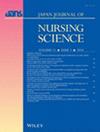Stigmatizing attitudes toward autistic students: A cross-sectional vignette survey among Japanese university students
Abstract
Aim
Stigmatizing attitudes toward autistic students can negatively impact their mental health and social connections. This study examined Japanese university students' attitudes toward autistic students.
Methods
A cross-sectional vignette study was conducted with 845 Japanese university students. Participants were presented with one of four vignettes depicting an autistic student in a university classroom, based on a 2 (behavior types: disruptive vs. withdrawn) × 2 (autism diagnosis disclosure: open vs. closed) design. Stigmatizing attitudes were measured using a social distance scale. Stigma levels were analyzed using analysis of covariance with multiple independent variables: behavior type, autism diagnosis disclosure, and their interaction terms.
Results
Of the 845 participants (response rate: 55.5%), 626 completed the survey and were included in the analysis. Disruptive autism-related behaviors elicited significantly greater stigma than did withdrawn behaviors (p < .01). Those exposed to open autism diagnosis disclosure exhibited greater social distance than did those exposed to closed vignettes (p < .01). No significant interaction effect was observed. These associations remained significant even after controlling participants' knowledge of autism.
Conclusion
This finding indicates that autism diagnosis disclosure could unintentionally strengthen negative stereotypes and increase stigma.

 求助内容:
求助内容: 应助结果提醒方式:
应助结果提醒方式:


